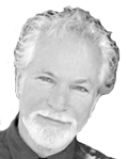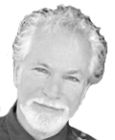
Sleep
One Night at a Time: Sleep, Alcohol, and Recovery
Is there a link between sleep problems, alcohol, and recovery?
Posted November 27, 2011 Reviewed by Jessica Schrader
A few years ago, I accompanied a visiting friend, Rafael, to an AA meeting. Having occasionally sat in on 12-step meetings over the years, I generally knew what to expect. The only surprise this evening was that the smokers were now huddled outside, quickly getting their last fix of nicotine before the start of the meeting. Inside, the coffee drinkers were busy customizing their hits caffeine.
Aware that concerns about nicotine and caffeine use in recovery had been beaten to death, I let it go and sank back into my chair with anticipation of the heartfelt stories to come. I've always had a deep regard for the fellowship, especially its emphasis on personal responsibility, non-judgmentalism, and the key role of surrender in healing.
Back home later that evening near bedtime, I was surprised to see Raphael casually pop a sleeping pill. "Hmm. Do you really need to take that?" I asked. He paused, looked me squarely in the eye and said, "I couldn't make it through the night without it."
The contrast between the spirit of sobriety in AA meetings and my friend's dependence on sleeping pills was striking. It left me thinking about the critical but largely overlooked link between sleep problems, alcohol, and recovery. Over the years, I had seen hundreds of patients with troubled sleep who were also dependent on alcohol. And many others who used alcohol more sparingly, but quite regularly as a sleep aid. Then there was an even larger group who routinely relied on other licit and illicit substances like sleeping pills, tranquilizers and marijuana to knock themselves out at bedtime.
It is well known that most alcoholics had significant sleep problems prior to active drinking and that these generally worsened during active drinking and through treatment and recovery. While 15 percent of the general adult population struggle with persistent insomnia, more than 50 percent of alcoholics report having such problems that predated their drinking.
Dependence on substances is epidemic in our world. We turbo-charge our daily lives with counterfeit energies—stimulants such as highly processed carbohydrates, caffeine, and nicotine. And then, accelerating out of control, we depend on sedating substances like alcohol, marijuana and sleeping pills to provide a kind of counterfeit rest at night. Part of the special appeal of alcohol is that it initially functions as a stimulant and then becomes a depressant. In this way, it doubles as an agent of both counterfeit energy and counterfeit rest.
There is a common belief in our world that it is frequently necessary and even reasonable to "take something to sleep." It is questionable, however, if sleep-inducing substances actually provide true, restorative sleep. Although they might offer us temporary relief by masking symptoms of insomnia, this does not constitute good sleep any more than masking the symptoms of anxiety with alcohol provides good mental health.
Many people believe that alcohol helps them sleep. Although it can facilitate sleep onset, alcohol alters circadian rhythms, suppresses melatonin and significantly disrupts sleep and dreaming as we proceed into the night. Drinking is also known to exacerbate snoring and sleep apnea, a serious condition in which breathing is compromised during sleep.
We continue to naively mistake the jittery buzz of counterfeit energies for natural vitality and the doped-up drowsiness of sedating substances for genuine sleep. Consequently, we remain in deep denial about the obvious link between our dependence on substances and the sleep disorders epidemic. It is striking that so few residential alcoholic treatment programs address sleep aspects of recovery in a meaningful way, leaving their clients unnecessarily vulnerable to failure and relapse.
Even though sleep problems are common among alcoholics, there is little mention of them in the Big Book, possibly because there was less social consciousness about sleep when it was written. Recovering alcoholics at the time had limited options for addressing their sleep struggles. They could use barbiturates, the highly addictive and potentially lethal sleeping pills available at the time or, as I suspect most did, they could just muscle through.
Because it could seriously interfere with their presence at meetings and working the program, people in recovery had to learn to manage their inevitable daytime sleepiness in other ways. Enter nicotine and caffeine. These two highly stimulating substances could alleviate excessive daytime sleepiness by providing energy, albeit counterfeit, on demand. I believe that smoking cigarettes and drinking coffee became readily sanctioned practices in the AA subculture for this very reason.
Although they do not alter consciousness as dramatically as alcohol can, both caffeine and nicotine also interfere with melatonin production, damage circadian rhythms and compromise healthy sleep and dreams. Even more compelling is the negative impact of smoking on health. A recent review in the Journal of American Medical Association reported that alcoholics today were significantly more likely to die of smoking-related illnesses than from diseases associated with drinking. Despite this, many in recovery remain in denial about their dependence on caffeine and nicotine.
I believe anyone personally concerned with alcohol dependence, especially those active in recovery, could benefit from a firm commitment to improve their sleep. So many already understand that they would sleep better if they stopped drinking. Too few, however, realize they could better manage their drinking if they started sleeping.
Not surprisingly, the essential principles that underlie healthy sleep are most consistent with those critical to alcohol recovery. Personal responsibility, non-judgmentalism and the practice of surrender are as germane to healthy sleep as they are to sobriety. Those choosing to augment alcohol recovery with sleep recovery will find a most comforting synergy.



